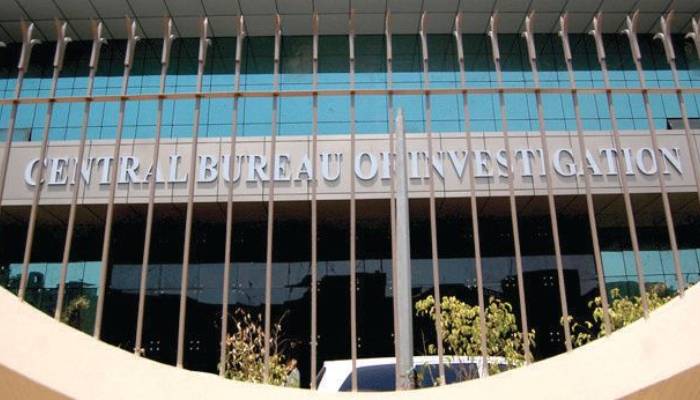
or

The Gauhati High Court in, Sh. Navendra Kumar v. UoI case, by its judgment delivered on November 6, 2013, set aside and quashed the Resolution, dated 01.04.1963, whereby the Central Bureau of Investigation (CBI) was constituted. And therefore declared the actions of the CBI, in registering a case, arresting a person as an offender, conducting search and seizure, prosecuting an accused, etc., offend Article 21 of the Constitution and therefore considered them liable to be struck down as unconstitutional. The judgment as would be expected created quite a buzz in the criminal justice administration of the nation as constitutionality apart it would have had many unintended undesirable consequences.
The petitioner challenged the constitutional validity of the formation of the CBI and its powers to investigate and function as a police force and/or its powers to prosecute an offender first in a writ petition and later, on its dismissal, by way of writ appeal contending that the CBI is not a statutory body, the same having been constituted not under any Statute, but under an Executive Order/Resolution No. 4/31/61-T, dated 01- 04-1963.
Faced with such an peculiar question which CBI itself admitted had never been raised in the past of its very existence, CBI brought about its argument that it had been exercising functions and powers of police under the Delhi Special Police Establishment Act, 1946.It also contended that it has been functioning for more than four decades, but its constitutional validity has never been challenged by any one and, hence, this settled position may not be unsettled.
After due consideration of arguments and counter arguments, the High Court concluded that: “The impugned Resolution, dated 01.04.1963, is not, strictly speaking, an executive action of the Union within the meaning of Article 73 in as much as the executive instructions, embodied in the impugned Resolution, were not the decision of the Union Cabinet nor were these executive instructions assented to by the President. Therefore, the impugned Resolution, dated 01.04.1963, can, at best, be regarded as departmental instructions, which cannot be termed as ‘law’ within the meaning of Article 13(3) (a) nor can the executive instructions, embodied in the impugned Resolution, dated 01.04.1963, be regarded to fall within the expression, “procedure established by law”, as envisaged by Article 21 of the Constitution.”
Further the High Court also did not see much value in CBI’s argument that it was functioning under DSPE Act and held that:“the DSPE Act, 1946, is not a valid piece of legislation, we do hold that the CBI is neither an organ nor a part of the DSPE and the CBI cannot be treated as a ‘police force’ constituted under the DSPE Act, 1946.”
Given the fact that the judgment would have had such unintended consequence on the investigation and prosecution of thousands of cases across the country that in the interests of justice the Supreme Court (SC) on Nov. 9, 2013 duly stayed the Judgment. The Matter is now coming up for hearing on December 6, 2013.
The Supreme Court having done away with the initial scare caused by the the judgment has given CBI and criminal justice system requisite respite. Now all eyes thus would now be on SC as to how it determines the precise constitutional question as has been identified by the Gauhati High Court that:
“Article 21 is one of the most cherished provisions in our Constitution, which prohibits the State from depriving a person of his life and liberty except according to the procedure established by law. However, what happens if by the State’s action, which has been neither sanctioned by a legislation nor has been taken in valid exercise of its executive powers, the ineffaceable mandate of Article 21 gets smudged.”
But whatever said and done, it cannot be forgotten that CBI is still India’s Premier Investigative agency which irrespective of the controversies enjoys the trust of the public especially in an environment where there is general erosion of confidence about our institutions and their efficacy. Further also given the fact that, many people who are either on trial or facing investigation have wasted no time in seeking stay of their trials or investigation against them, the judgment would have had serious repercussions on the administration of justice in the country it brings to light the larger focus of how an impasse or delay in granting stay by the SC could have opened a series of petitions by accused who are undergoing trials to seeking relief. It was indeed heartening to note the speed with which CBI worked overtime in filing its Petition before the CJI and had the matter heard including raising in its defence many arguments which shall have an important bearing which Supreme Court would consider while delivering its judgment.
S. Ramaswamy is Vice President, General Counsel & Company Secretary for JCB India Ltd. Views are personal and do not intend to reflect any political bias.

Lex Witness Bureau

Lex Witness Bureau

For over 10 years, since its inception in 2009 as a monthly, Lex Witness has become India’s most credible platform for the legal luminaries to opine, comment and share their views. more...
Connect Us:


The Grand Masters - A Corporate Counsel Legal Best Practices Summit Series
www.grandmasters.in | 8 Years & Counting
The Real Estate & Construction Legal Summit
www.rcls.in | 8 Years & Counting
The Information Technology Legal Summit
www.itlegalsummit.com | 8 Years & Counting
The Banking & Finance Legal Summit
www.bfls.in | 8 Years & Counting
The Media, Advertising and Entertainment Legal Summit
www.maels.in | 8 Years & Counting
The Pharma Legal & Compliance Summit
www.plcs.co.in | 8 Years & Counting
We at Lex Witness strategically assist firms in reaching out to the relevant audience sets through various knowledge sharing initiatives. Here are some more info decks for you to know us better.
Copyright © 2020 Lex Witness - India's 1st Magazine on Legal & Corporate Affairs Rights of Admission Reserved